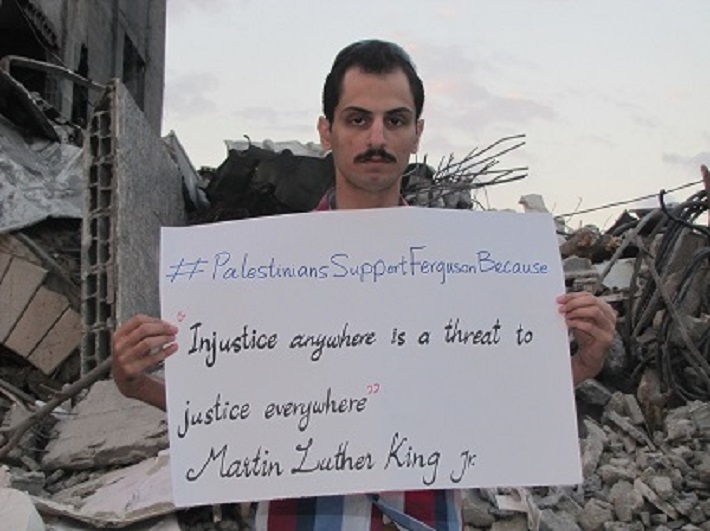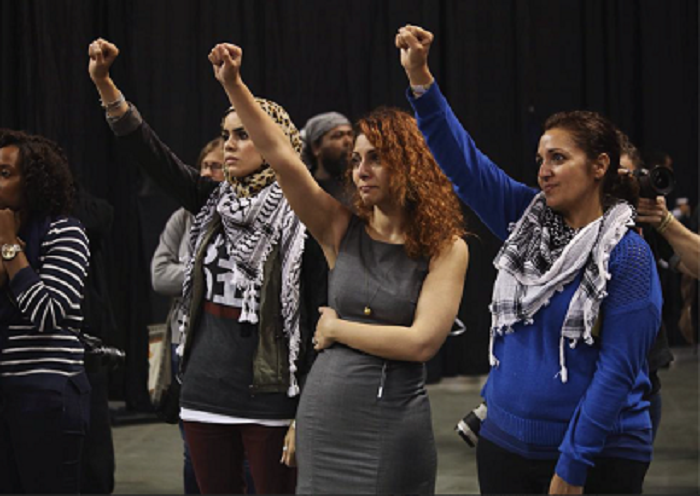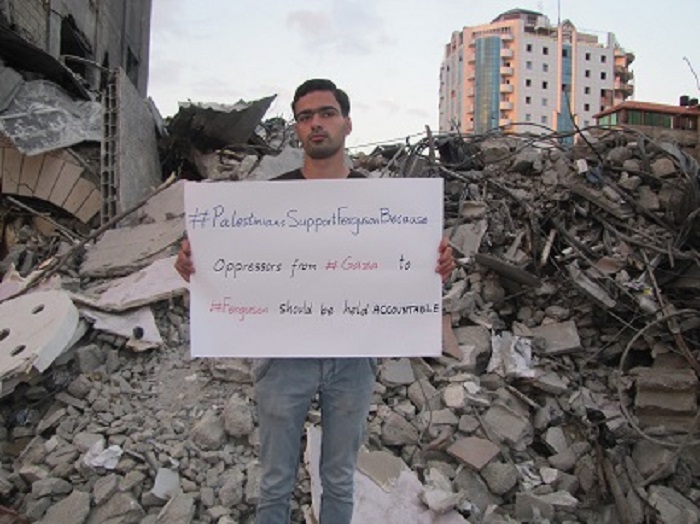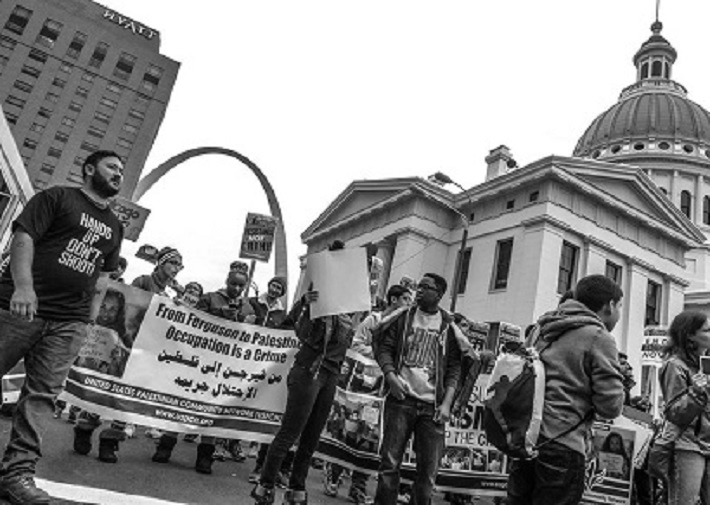Bassem Masri was a Palestinian activist who was very engaged in protests in St. Louis after Mike Brown was murdered. He live streamed many events around the Ferguson uprising and himself was arrested and interrogated during the protests. AFSC is sad to hear that he died this week, one of five Ferguson activists that have died since 2014. We send condolences to his family and loved ones. We honor his memory by sharing this piece he wrote for us in the summer of 2014.
As the son of immigrant small business owners from Palestine, I was taught to believe in the American dream of freedom, liberty and the white picket fence. This past summer has shattered this belief. The dream doesn't apply to certain people in our society.
When Mike Brown was murdered in Ferguson my people in Gaza were being slaughtered by Israel in Operation Protective Edge. The timing of the two events woke up a lot of people. When Mike was killed, much of the media started demonizing him and the protestors, often the same sources that blamed Palestinians for their own deaths in Gaza. People naturally saw the connections.

For over 66 years, mainstream America has maligned and dismissed Palestinians’ own accounts of our oppression. Now that the same kind of repression is being experienced at home, more and more black Americans see the connections and understand the Palestinian struggle. When I showed up to protest in Ferguson and introduced myself as a Palestinian, people there immediately met me with respect.
On those terrible nights in Ferguson when the police were attacking peaceful civilians with tear gas, Palestinians under Israeli occupation offered advice on how to deal with the effects of the gas. Facing violence from an occupying force, whether in Palestine or Ferguson, forges a mindset that demands resistance and standing up for one’s community. When the police used military tanks and checkpoints to imprison the residents of Ferguson, I was reminded of life in the West Bank where I saw the Israeli military use the same tactics of repression.
While the wall of segregation and inequality in Palestine is a physical one; the wall in Ferguson is invisible to those who wish to turn away. Only blacks in St. Louis understand their own situation. They face constant harassment and the fear of being detained without due process or basic dignity. When I stand with the people in Ferguson, I regard them as Palestinians. Our common goal is to live in peace and to not fear for our children's lives when they are walking down the street.

Since the day of Mike Brown”s death, I've been tear gassed, shot at with rubber bullets, and physically assaulted by the police. On September 27, I was arrested and taken to jail. I believe the police targeted me simply because I stand with Ferguson and have been documenting the events there with live stream.

Racism drives the violence we see in both Palestine and Ferguson. In the United States whites’ fear of black people is often subconscious. In Palestine, anti-Arab sentiment is prevalent and open. The Israeli occupation soldiers have no contact with the Palestinians they control except behind guns.
Until all our children are safe, we will continue to fight for our rights in Palestine and in Ferguson. Our goal is to dismantle apartheid regimes wherever they exist. That is the most important link between Palestine and Ferguson, and it is the link that will make both struggles stronger.
